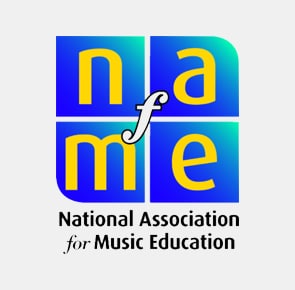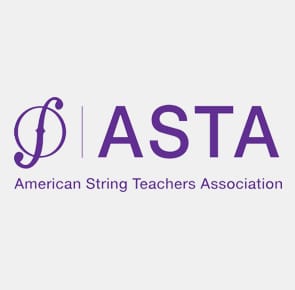What Does a Career in Music Education Entail?
If you're passionate about music and want to share that passion with others, an online music education degree could be the perfect career path. While becoming a professional musician in an ensemble or band isn't the only option, you can still make a great living teaching music at the college level or even offering private lessons from home. A music degree in education equips you with both teaching and musical skills, setting you up for success in this rewarding field. Explore the best online music education degrees to take the first step toward becoming a music educator.
A career in music education offers diverse opportunities, from teaching at elementary schools to conducting graduate programs and developing music curricula. According to the U.S. Bureau of Labor Statistics (BLS), the highest demand for music educators is found at colleges, universities, and professional schools, with junior colleges following closely behind. Music educators are also needed in high schools, middle schools, elementary schools (public and private), and even performing arts companies. Discover the best online music education degrees to pursue a rewarding career in this field, shaping the next generation of musicians and educators.
Music education teachers have the opportunity to teach a variety of subjects, including playing instruments, singing, music theory, history, and technology. They may also participate in orchestral or musical theater productions at the high school or university level, as well as teach subjects like percussion, jazz studies, K-12 music education, conducting, and instrumental music ensembles. While master's programs in music education are available online, there are fewer options compared to in-person courses. Online programs often offer classes in music technology, music theory, and related fields, making them an ideal choice for aspiring music educators. Explore the best online music education degrees to kickstart your career in this dynamic field.

Components of A Successful Career In Music Education
The old saying, “Do what you love, and you’ll never work a day in your life”, applies well to music educators. A successful career in music education varies by the individual, but it means sharing your passion for music with students, teaching music at different levels, and encouraging students to pursue their own musical careers or specific interests. Music educators who work in therapeutic organizations also know the difference a music program can make in those with disabilities, whether they are physical, cognitive, or behavioral.
How to Become a Music Teacher
You cannot become a teacher in any state-run school (K-12) or in any college or university unless you earn at least a bachelor’s education degree. Most Bachelor of Music education degree programs require some form of audition for acceptance into a music education degree program. This may include tests or submission of performance videos. On top of this, you also need to participate in an internship student teaching experience in order to complete you bachelor’s degree and become a music educator with students of your own.
Find Your Online Music Education Program
Typical Certifications Needed
Those specializing in particular types of music education will require certification from a credentialed board. For example, music therapists must receive certification from the Certification Board for Music Therapists.
If students wish to teach, they must receive teaching certifications from the state in which they wish to work. Those earning a Bachelor of Music or a Bachelor of Art degree from a music education program at some schools may qualify for music teacher certification upon graduation, but such certification is usually only good for teaching in that particular state. You’ll need to verify that you can move out-of-state with your certification with your state board of education if you wish to do so.
Academic Standards
 As with any degree, you will have to meet certain standards in order to gain acceptance to the school of your choice. Though standards differ, most schools require a few things before deciding if you can enter their music education program: your high school transcripts or GED, an application fee, performance recording and/or recommendation from a music teacher or tutor you’ve worked with, minimum SAT/ACT scores, and possibly even a face-to-face interview. In order to remain in the program, you will need to maintain a certain GPA average, usually over 2.5 or more, and not break any rules of student conduct, by cheating or anything similar.
As with any degree, you will have to meet certain standards in order to gain acceptance to the school of your choice. Though standards differ, most schools require a few things before deciding if you can enter their music education program: your high school transcripts or GED, an application fee, performance recording and/or recommendation from a music teacher or tutor you’ve worked with, minimum SAT/ACT scores, and possibly even a face-to-face interview. In order to remain in the program, you will need to maintain a certain GPA average, usually over 2.5 or more, and not break any rules of student conduct, by cheating or anything similar.
Exam/Experience Needed
There are some college majors in which students do not need a great deal of prior experience in the subject, but that is not as true of specific or general music education. While it is unlikely a student with no musical experience or training will want to pursue this field, a student entering this field with little musical knowledge will have a lot of catching up to do and might even feel like a foreign language. As noted, most schools require some form of audition for acceptance into this major.
Once you graduate, you will need to sit for one or more national exams depending on where you plan to teach. As was stated before, if you are planning to use music for therapeutic purposes, you’ll need special certification. If you are planning to teach any class in k-12, you will need to complete the Praxis I. If students plan to teach a music class in the private or public school system, specifically in a middle or high school, they may need to complete the Praxis II as well to prove that they are versed in their chosen discipline. There are a few exceptions to this rule, depending on the state in which you reside, so be sure to check all requirements and restrictions for music educators with your state board of certification and licensure.
Online Associates Degree
Students pursuing an associate’s degree in music education must complete at least 60 credits to receive their degree, of which 24 credits relate directly to their major. However, you need to be aware that, although this is a less expensive degree, it may not be very useful in the education field. Most states require a bachelor’s degree to teach in a classroom. With an associate’s you can work as a teacher’s assistant and get some experience under your belt, but you’ll likely want to go back to school for your bachelor’s if you want to be a teacher with your own classroom.
Courses taken may include:
- Music Theory
- Ear Training
- Applied Music
Depending on their career plans, students may also take related classes in business and accounting/finance if they are considering a music business career.
Online Bachelor’s Degree
A bachelor’s degree in music education requires 180 credits, of which at least 80 credits are outside the degree major. This degree will allow you to lead your own classroom at the pre-, elementary, middle, or high school level. Those majoring in music education must choose an emphasis, whether that is vocal, piano, instrumental, etc.
Find Online Music Education Schools
Typical courses for a bachelor’s degree in music education include:
- Music History
- Music for Children
- Music Education Classroom Management
- Choral Curriculum
Students interested in teaching music will also take educational courses to qualify for teaching certification.
Online Master’s Degree
A master’s degree in music education focuses on the individual’s area of expertise. Anyone considering a career as a music professor, musical director, or other top area in the field may want to pursue a master’s degree. Many master’s degree programs in music education require applicants to already have their teacher certification. A master’s degree in music education usually consists of 33 credits and may be completed within two years.
Coursework may include:
- Research and Design in Music Education
- Curriculum and Supervision
- Trends and Issues in Music Education
- Psychology of Music
Earning Potential for Music Education Degree Fields and Occupations
Music Education Fields of Study
- Special Education
A much-needed field of study, requiring a significant amount of understanding and compassion from anyone in the field. These teachers are responsible for classrooms which teach those with learning and developmental disabilities and make sure that they also get the education they deserve. - Music Teacher K-12
The most popular field of study for music education majors, music teachers are in demand across the country in almost every school district and private school. Music teachers must have state certification to teach. - Music Teacher, Post-secondary
You’ll have to have at least a master’s degree to teach music in a college, and also a lot of experience under your belt. However, any special instruments you have worked with will likely give you a leg up, as you will bring that specialized teaching to your new college or university. You may also be able to eventually earn a place at a specialized musical college, though you will likely have to earn a doctorate or have a quality career with an orchestra to end up there. - Music librarian
Music librarians work in various facilities, including colleges, TV and radio stations, and various professional music organizations. The median annual salary for a music librarian is $56,880. - Music Ministry Directors/Worship Pastors
A role in many religious institutions in which you direct songs during services, lead choral groups, and teach children music for plays on holidays and special occasions.
Annual Salary by Occupation (Range)
| Occupations | Entry-Level Salary Range | Mid-Career Salary Range | Late-Career Salary Range |
|---|---|---|---|
| Music teacher | $37,900 | $43,000 | $53,100 |
| Music therapist | $39,200 | $45,000 | $52,900 |
| High School Teacher | $41,300 | $49,300 | $62,700 |
| Professor | $60,100 | $69,600 | $99,900 |
| Teacher’s Assistant | $22,800 | $23,000 | $27,100 |
| Middle School Teachers | $40,300 | $48,100 | $59,100 |
Music Education Salaries by Occupation
Occupations
- Music Teacher K-12
Music teachers are employed in public and private elementary, middle and high schools. Music teachers introduce students to music based on age and grade, and may also direct group singing lessons and musical and orchestral performances. Because most schools employ music teachers, this is the field to which most music education majors head. Salaries vary according to the school district, but the average music teacher earns $58,636 annually. - Music Librarian
These librarians perform many of the same functions as a standard librarian, but their duties are all music-related. They work in research libraries, colleges and universities, with music publishers, TV and radio stations, and musical organizations. Along with cataloging and maintaining music collections, music librarians may plan concerts and similar events. The median annual salary for a music librarian is $56,880. - Music Professor
Music professors work at the college or university level or at music conservatories. Professors must have a graduate degree, generally a Ph.D. Music professors teach various classes, including music theory, composition, or work with students on instrumental or vocal performance. The median salary for music professors is $100,840. - Music Scout
Also known as a talent scout, music scouts work for record labels and are responsible for finding new musical talent. The job involves a great deal of travel to various gigs, listening to countless hours of music, and an instinct for finding up-and-coming talent. Along with the ability to spot the gifted and talented, by nature, the music scout is personable and can work well with musicians and club owners. The average salary for a music scout is $75,791, although the very best can earn much more. This role is often a stepping stone to becoming a music industry executive. - Music Therapist
This occupation involves using music as therapy for those with mental, emotional, or behavioral issues. Therapy may include listening to carefully chosen music, writing lyrics, giving performances, or otherwise learning via music. Music therapists may work in schools, hospitals, psychiatric facilities, nursing homes, community health centers, substance abuse programs, and correctional facilities. The median pay for music therapists is $47,680. - Artist Relations Manager
The title says it all, as it falls to the artist relations manager to keep an artist - in this case, musical artists – to ensure the needs of an artist are met at their record label or other venues. The manager may coordinate with the artist regarding publicity, media, and marketing, or work primarily as the liaison between the artist and the company. On average, an artist relations manager earns $83,435 annually. - Acoustical Consultant
Also known as an acoustical engineer, this position involves working with architects and construction managers to devise acoustical environments. This role is not limited to concert halls and other performing arts venues but includes restaurants, schools, hospitals – virtually anywhere – where good acoustics are needed. On average, acoustical consultants earn about $58,000 annually. - Orchestra Business Manager
This role relates more to business than music per se, although it is business management in a musical field. Orchestra business manager responsibilities include the financial, marketing, production, and personnel aspects of the orchestra. Salaries for orchestra business managers depend on the size of the orchestra, although the average is about $60,000 annually. Business managers for large orchestras may earn $265,000 or more. - Concert Promoter
Also known as tour promoters, this job involves organizing live concerts or special events. This includes negotiating artist contracts, securing the venue, arranging transportation, and all the other aspects of organizing a tour. While some concert promoters work independently, many are employed by major concert-producing corporations. Salaries run the gamut, with much depending on the level of musicians involved and the promoter’s own talents. - Vocal Coach
A vocal coach helps singers prepare for performance, and also works with them on singing technique. Such coaches may give private or group lessons and may conduct some classes via Skype or other online platforms. Vocal coaches work with singers in all musical styles. Depending on experience, vocal coaches may earn between $25,000 and $162,000 annually.
Important Questions to Ask
How long does it take to earn a music education bachelor's degree online? Unlike many other degrees, a music degree program may not be offered solely online. This is mostly due to the hands-on nature of learning music; how can your teacher know if you can play your chosen instrument if they aren’t with you in a classroom setting? Even though some on-campus work is necessary, it may prove possible to complete coursework unrelated to your music program or music education major online. Music students can expect to finish a general music education degree program within four years if attending full-time and six years if taking classes part-time.
Search Programs Offering Music Education Majors
How much does a bachelor’s degree cost?
 The cost of your degree depends on the school. An online course of study is generally less expensive than a traditional college, since you must generally pay for room and board as well as tuition. You can earn an associate’s degree at a community college. A public college or university, if you are a state resident, is less expensive than a private college or university.
The cost of your degree depends on the school. An online course of study is generally less expensive than a traditional college, since you must generally pay for room and board as well as tuition. You can earn an associate’s degree at a community college. A public college or university, if you are a state resident, is less expensive than a private college or university.
Does the school have the major(s) you’re considering?
A music education major is not the same as music major, so make sure the school offers a specific music education major. Some schools may offer music business majors, which are useful for those considering the business side of the music industry. However, no other music major will prepare you for the teaching exams required to let you teach in a classroom setting and if you fail to take appropriate classes, you will be disappointed when you graduate, and the state board will not even let you sit the exam for licensure.
How many students graduate “on time,” in four years?
The graduation rate tells you a great deal about a school. Avoid schools with low four-year graduation rates, as that might mean students are not receiving the best academic support, or there are issues with the faculty or affordability. While it is just one standard for you to consider, it is indicative of the overall quality of the school. However, it’s important to note that graduation rates have shifted in recent years. Instead of a four-year mark being the norm, even the government has begun using a six-year completion rate to create school’s graduation rates. The information below shows you the percentages for graduation timeframes:
| Graduation rate | Four-years | Six-years |
|---|---|---|
| Four-year public schools | 35% | 65% |
| Four-year private schools | 53% | 68% |
What kind of accreditation does the program hold? How is it regarded in the field?
Accreditation is extremely important when choosing a college. Never consider an unaccredited school, as you would end up wasting time and money. When pursuing a career in music education, consider schools accredited by the National Association of Schools of Music (NASM). In addition, look for schools with regional accreditation. The six regional accreditation agencies are The Middle States Association of Colleges and Schools, The New England Association of Schools and Colleges, The North Central Association of Schools and Colleges, The Northwest Association of Schools and Colleges, The Southern Association of Schools and Colleges and The Western Association of Schools and Colleges.
Music Education Scholarships
Many music education scholarships are available on the local level, and there are some geared nationally. Examples include:
-
National Federation of Music Clubs Gretchen E. Van Roy Music Education Scholarship
Amount: $500 - $1,500
Deadline: April 1
This $1,150 scholarship is awarded to a college junior majoring in music education. Only native Americans or naturalized citizens are eligible to apply. Applicants must either belong to the National Federation of Music Clubs (NFMC) or join in order to apply.
-
Davidson fellows Scholarship
Amount: $50,000, $25,000, and $10,000
Deadline: February 14
This scholarship is offered to students, under 18, that have completed a “significant piece of work”. For music enthusiasts, this would mean a performance, writing your own score, or another proof of excellence.
Professional Organizations
- MTNA
- NAfME
- ASTA

MTNA
Music Teachers National Association
The MTNA, in existence for over a century, offers continuing education resources for music teachers, including conferences, master classes, and other events. Other membership benefits include competitions, consultation services, insurance, and teacher grants. The MTNA offers two subsidiary programs: The MTNA Professional Certification Program works to improve the professional level in the field of applied music teaching, helping the public identify outstanding music teachers in their area. The MTNA Foundation Fund supports programs financially assisting teachers and students with their education, while providing opportunities for individual and corporate support of the MTNA and its programs.

NAfME
National Association for Music Education
Founded in 1907, NAfME dedicates itself to ensuring the presence and accessibility of quality music programs across the country, taught by certified music teachers. NAfME advocates at local, state, and national levels while providing resources for administrators, teachers, and parents. It offers professional development and various other opportunities for teachers and students.

ASTA
American String Teachers Association
Founded in 1946, the ASTA serves the needs of string teachers, orchestra directors, and string performers. Its mission is providing “professional development, career building and support, and a community of peers for all teachers of stringed instruments.” ASTA offers various awards, including its annual Artist Teacher Award, as well as various competitions, and an instrument outreach program. The latter awards new instruments to deserving string students nationwide.
Choosing an Accredited College
Choosing an accredited college must be one of your highest priorities when looking for a music education program. It doesn’t only make it possible for you to sit for your teaching certification exams, which is not possible with a degree that is not certified. It also will allow you to use federal student aid programs, allowing you access to student loans and grants. Many scholarship platforms also will not accept your applications if you are not enrolled at an accredited school.
Find Your Online Music Education Program
Online vs On-Campus vs Hybrid
For the most part, a bachelor’s degree in music education is not offered online. Most students must pursue their degree on campus, although it is possible to obtain a hybrid degree in which many general education or elective courses are taken online, and the student must attend on-campus classes for music education classes. However, those seeking a master’s degree in music education may be able to find strictly online degree opportunities.
Additional Questions
Does the College Have Post Graduate Job Placement Help & Assistance?
Some music education degree programs may offer internships with record companies, performing arts centers, and other businesses in the music field, along with job placement assistance for graduates. If a college does not provide any career services or post-graduate assistance, then they may be more interested in getting you enrolled than they are in making sure you are able to graduate and succeed in your chosen field.
Why You Need to Consider the Overall National Rankings of the College and The Effects on Your Career or Salary
There are some colleges very well-known in the music education field, and graduation from one of these institutions may make you a more attractive candidate for some types of music education employment. Top schools include Berklee College of Music, Eastman School of Music, Ithaca College School of Music, University of Wisconsin Madison, and Westminster Choir College at Rider University. If all other things are equal, you might want to consider checking the national rankings of your college options to help you make a final selection.
Frequently Asked Questions
Why choose an online master’s?
One reason many students choose to earn a master’s in music education is that they are either trying to transition to education and teaching or they are trying to shift their teaching career toward music specifically. And those teachers who started out teaching music may be working toward administration or be looking for the opportunity to teach at the college level. No matter your reason for considering this degree, you will gain a variety of practical skills. These can enhance your teaching ability anywhere from k-12 to the college classroom.
What can I expect from a program in this field?
The majority of your classes will be focused on in-depth teaching or music knowledge. You should already have a grasp of music history and theory; now it’s time to really master your ability to teach these things to others and to know how to build musical lesson for the individual student. By learning how best to design, develop, and use music instruction, you’ll be more than prepared to improve your student’s knowledge moving forward.
sources:
Search All Programs
